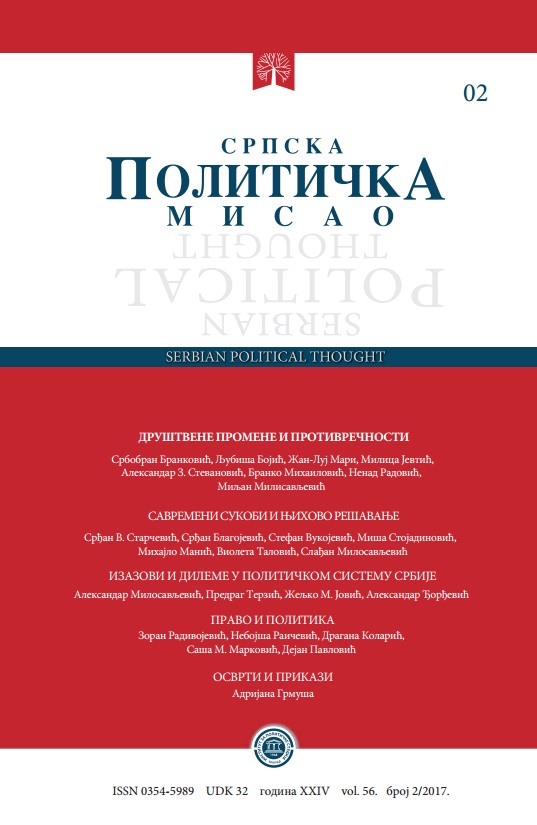Политичка функција синдиката: теоријске основе и практична димензија
Political Function of Trade Unions: Theoretical Basis and Practical Dimensions
Author(s): Aleksandar Milosavljević, Predrag TerzićSubject(s): Labor relations, Government/Political systems, Political behavior, Politics and society
Published by: Институт за политичке студије
Keywords: union; politics; function; system; process
Summary/Abstract: The main thesis of this paper is that the unions are focused on politics to a great extent and their political function, taken from theoretical and practical point of view and understood in the broadest sense, plays an important role in the regulation of the relationship with the political system. Relying on the reference and theoretical literature, argumentation supporting the previously stated position proceeds from the neo-populist approach in thematizing of the relationship between the modern society and the state, as well as the empirical fact that the unions are one of the most important organizations of civil society. The political function of the unions and the state is complementary to other union functions. The historical aspect of the union activities, theoretically shaped by the institutional economists, also gives a lot of argumentative evidence that the unions at the beginning of their operation presented both economic and political actors. The influence of the politics on the formation of the syndicalism, especially in the West European countries, is relevant as well. The contribution of the unions to the development of democracy is in correlation with their current capacities to strengthen and consolidate this order, which also brings them to a close relationship with politics. The efficiency and practical operationalization of the political function of the unions are conditioned with historical heritage as well as institutional configuration of current political context and the current constellation of political power. Available models of political influence represent the achievements of the past development of the relationship between the unions and political parties and political system as a whole, whose applicability depends on the capacity of the unions and institutional context of their operation. The unions in Serbia in their documents recognize the importance of making an impact on the process of creating and adopting official policies. At the same time, they are incapable to achieve this goal, apart from chosen model of political influence. The summary: modern union which is perceived in the light of democratic pluralistic political theory, represents a legitimate political actor. Its total potentials to realize its political function are determined by the performances of achieved development as well as current constellation of political power in the society and the following institutional design.
Journal: Српска политичка мисао
- Issue Year: 2017
- Issue No: 2
- Page Range: 193-208
- Page Count: 16
- Language: Serbian

